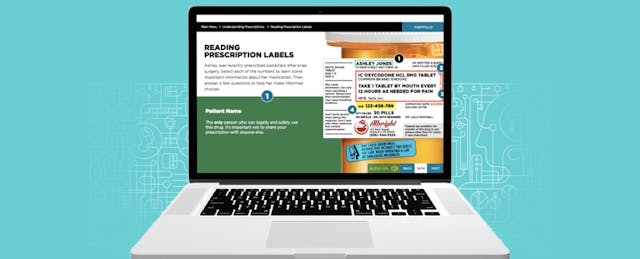What happens to the ninth grader in Columbus, Ohio who finds her mother’s leftover prescription in the medicine cabinet? Or the tenth grader in Denver, Colorado who witnesses his older sister’s fatal struggle with addiction? Sadly, it’s easy to grow numb as Americans nationwide become just another statistic.
We are standing at a critical crossroads as elected officials, parents, educators, and law enforcement all struggle to determine how to effectively respond to the prescription drug abuse crisis that is sending shock waves through communities and homes across the country. With the national spotlight on opioid addiction and health care funding, many are left wondering how best to support our nation’s young people.
I believe preventative education is the key.
Much of the conversation around the drug epidemic has been focused on intervention, with the ultimate goal of treating those battling drug abuse. While this is a required component of any comprehensive strategy, tackling any large scale health issue also requires scalable prevention education. In order to change these national statistics, and in doing so save individual lives, the U.S. must move forward in providing high-quality education in order to prevent abuse before it begins.
In the case of opioids, prevention starts with educating at-risk individuals about the dangers and effects of misuse and abuse. This epidemic has infiltrated all demographics, but young people have become particularly vulnerable. The National Institute of Health’s Institute on Drug Abuse reports that nonmedical use of prescription drugs is highest among young adults aged 18 to 25. We need to reach them before the misuse and abuse happens.
Many of us remember the slogan that hit the airwaves in the 80’s from first Lady Reagan telling students to “Just Say No” to drugs. Public service announcements have been the traditional approach to educating youth on public health issues. These PSAs can provide broad reach to help raise awareness, but imagine if these were directly coupled with a tangible, measurable education program that actively engages students in learning about these critical topics. Such a comprehensive strategy would provide both the breadth and depth needed to have a meaningful impact: breadth through PSAs to start the conversation among community members, and depth in the form of an educational curriculum that reinforces the information by providing students and young adults with the actual knowledge and skills they need to make safer decisions for themselves and influence peers in a positive way.
To support such a vision focused on addressing the widespread abuse of prescription drugs among youth, EVERFI formed the Prescription Drug Safety Network which officially launches in Columbus, Ohio this week. Members of the Network include a diverse set of public and private organizations committed to tackling this issue at national, state, and local levels. The Network is connecting with the 20,000 K-12 schools and 1,300 colleges that utilize EVERFI’s digital learning platform to power a scalable, research-based, national digital prevention education platform at no cost to the schools or students.

This education initiative instructs students on a variety of topics related to prescription drugs and opioids around the core theme of empowerment in recognizing and preventing abuse. The ultimate goal of this initiative is to give students the tools they need to be a positive force in fighting this epidemic, while also furnishing the Network with a national data set that can provide insights to identify national, regional and local trends to direct strategy discussions.
Because of the broad reaching implications for our country’s public health , it is important for everyone to take action in advancing the dialogue and encouraging action to address this issue. Here is what you can do:
- Contact your elected officials and urge them to continue efforts to bring more research-based drug abuse education to schools, especially but not limited to areas that have high drug usage.
- Ask if your local school board requires any programming dedicated to preventative education on drug and specifically prescription drug abuse.
- Engage youth and young adults close to you in positive ongoing dialogue about the risk and signs correlated with opioid abuse. Not sure how to begin these conversations? Start with these talking points: What strategies do you use to handle stress? How would you handle a situation in which people around you were abusing prescription drugs? Are you aware of the signs of prescription drug abuse?
Only together can we mitigate this national epidemic and save lives.



